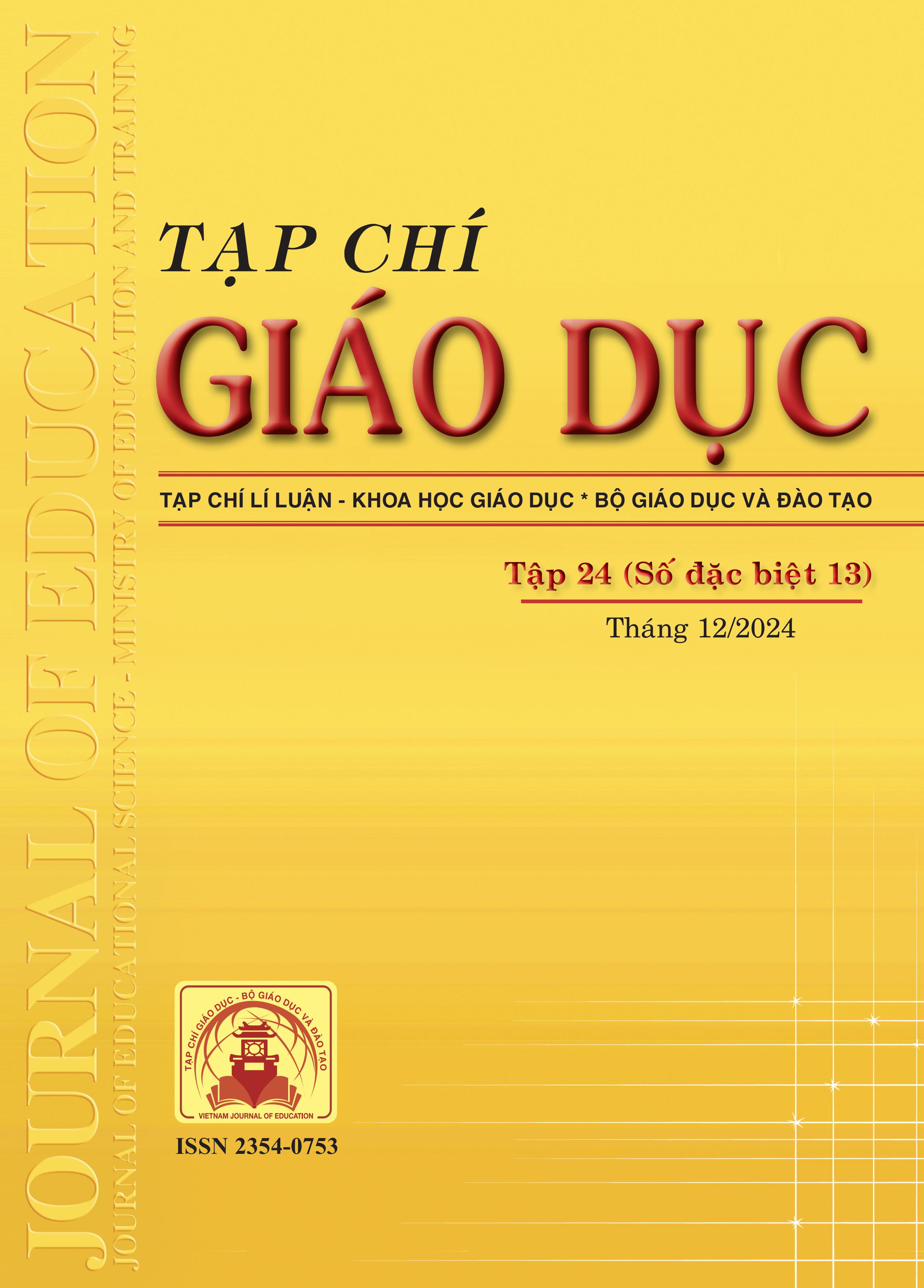Mối liên hệ giữa tương tác tâm lí và thái độ chấp hành kỉ luật của hạ sĩ quan, binh sĩ ở đơn vị cơ sở
Tóm tắt
In the military environment, discipline is a key factor to maintain strength and stability. However, the discipline of non-commissioned officers and soldiers in grassroots units often faces many challenges, in which psychological interaction between individuals plays an important role. This article studies the relationship between psychological interaction and the attitude of discipline compliance of non-commissioned officers and soldiers through three aspects: cognition, emotion and behavior. The results show that positive psychological interaction facilitates clear cognition, positive emotion and standard discipline compliance behavior. On the contrary, lack of interaction or negative interaction leads to stress, discipline violations and reduced unit management effectiveness. The study recommends strengthening the role of leaders and commanders in building a positive psychological interaction environment. Strict and in-depth educational and management measures should be applied to enhance the spirit of discipline among soldiers while minimizing conflicts and violations in grassroots units.
Tài liệu tham khảo
Craighead, W. E., & Nemeroff, C. B. (2004). The concise Corsini encyclopedia of psychology and behavioural science. 3rd edition, John Wiley & Sons: New York. Đức Tuấn, Hữu Tài, Mạnh Tường, Việt Hùng (2022). Ngăn chặn vi phạm pháp luật, kỉ luật trong Quân đội. Báo Quân đội nhân dân. https://www.qdnd.vn/quoc-phong-an-ninh/xay-dung-quan-doi/bai-1-mau-chot-la-chi-ra-ban-chat-van-de-710208
Hà Ngọc Thành (2019). Cơ sở tâm lí phòng ngừa vi phạm kỉ luật của quân nhân ở Binh chủng Đặc công hiện nay, Luận án tiến sĩ Tâm lí học, Học viện Chính trị - Bộ Quốc phòng. Hoàng Đình Châu (2005). Giáo trình Tâm lí học quân sự. NXB Quân đội nhân dân. Knud S. Larsen, Lê Văn Hảo (2010). Tâm lí học xã hội. NXB Từ điển Bách khoa. Lê Khắc Độ (2022). Giải pháp tăng cường quản lí kỉ luật, bảo đảm an toàn ở Sư đoàn 320. Tạp chí quốc phòng toàn dân. https://tapchiqptd.vn/vi/nghien-cuu-trao-doi/giai-phap-tang-cuong-quan-ly-ky-luat-bao-dam-an-toan-o-su-doan-320/19080.html
Lê Minh Nguyệt (2010). Mức độ tương tác giữa cha mẹ và con tuổi thiếu niên. Luận án tiến sĩ Tâm lí học, Học viện Khoa học xã hội - Viện Hàn lâm Khoa học xã hội Việt Nam. Nguyễn Khắc Viện (2001). Từ điển Tâm lí. NXB Văn hóa thông tin. Nguyễn Như Ý (2000). Đại từ điển tiếng Việt. NXB Văn hóa thông tin.
Nguyễn Quang Uẩn (2011). Tâm lí học đại cương 2. Trường Đại học Khoa học Xã hội và Nhân văn - Đại học Quốc gia Hà Nội.
Nguyễn Thị Quỳnh Phương (2012). Rèn luyện kĩ năng học hợp tác cho sinh viên sư phạm trong hoạt động nhóm. Luận án tiến sĩ Giáo dục học, Viện Khoa học Giáo dục Việt Nam. Vũ Dũng (2008). Từ điển Tâm lí học. NXB Từ điển Bách khoa.
Wagner, E. D. (1997). Interactivity: From agents to outcomes. In T. E. Cyrs (Ed), Teaching and learning at a distance: What it takes to effectively design, deliver, and evaluate programs. San Francisco: Jossey - Bass Publishers.
Đã Xuất bản
Cách trích dẫn
Số
Chuyên mục
Giấy phép

Tác phẩm này được cấp phép theo Ghi nhận tác giả của Creative Commons Giấy phép quốc tế 4.0 .












